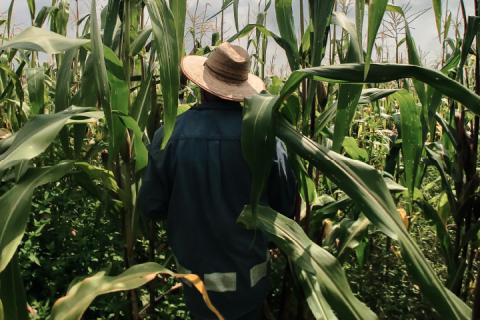Understanding Farm Stress

Many of the stress factors that affect agricultural production are largely beyond the control of the producer. For example, producers in one region might be facing severe draught while other regions are experiencing extreme flooding. Seasonal variations such as the daily stress of managing milk production in contrast to the seasonal stress of crop or livestock management are other contributing factors. According to the CDC, suicide among farmers were 3.5 times the national average in 2019 and have been increasing over the past decade.
Farm stress is the stress experienced by farmers and their families because of the unique agricultural work environment. The fear of losing a farm is attached to more than just the closing of a business. Farming is a generational legacy, a way of life, an identity. The burden of losing the farm and not passing it down to the next generation is something that weighs heavily on the farmer or rancher. The endless hours, fatigue, physical and emotional stress eventually takes its toll on the family unit.
5 Contributing Factors to Farm Stress:
- Weather and climate
- Tariffs and commodity pricing
- Debt load, equipment repairs
- Extreme outdoor work conditions
- Fatigue and excessive workload
Stress and depression increase the probability of injury, accidents, heart disease, stroke, chronic pain and disease among others.
In 2021, a National American Farm Bureau Poll conducted by Morning Consult found:
- 52% of rural adults and 61% farmers/farm workers were experiencing more stress and mental health challenges compared to the previous year.
- Farmers/farmworkers reported a 22% increase in social isolation, which impacts farmers’ mental health, a noteworthy finding given the long hours many farmers work alone.
- Stigma is still attached in the agriculture community to seeking help or treatment for mental health, even though it has decreased.
- Farmers/farm workers reported they are more comfortable talking to friends, family and their doctors about stress and mental health than they were in 2019.
- Younger rural adults are more likely than older rural adults to admit they are experiencing more stress and mental health challenges compared to a year ago, and they are more likely than older rural adults to disclose they have personally sought care from a mental health professional.

How To Find Help for a Loved One Experiencing Mental Health Challenges or Crisis
Professional Services and Technical Assistance for Farmers (Farm and Ranch Stress Assistance Network UNH):
- Up to six visits with a mental health professional
- Farm financial analysis
- Tax planning/succession planning
- Legal assistance
- Debt analysis/credit mediation
- Farmer to farmer support network
https://extension.unh.edu/farmer-stress
Rural Response to Farmer Mental Health and Suicide Prevention: https://www.ruralhealthinfo.org/topics/farmer-mental-health
Mental Health Technology Transfer Center for New England: https://mhttcnetwork.org/centers/content/new-england-mhttc
By: Michele M. Kroll, Behavioral Health and Well-being Field Specialist
